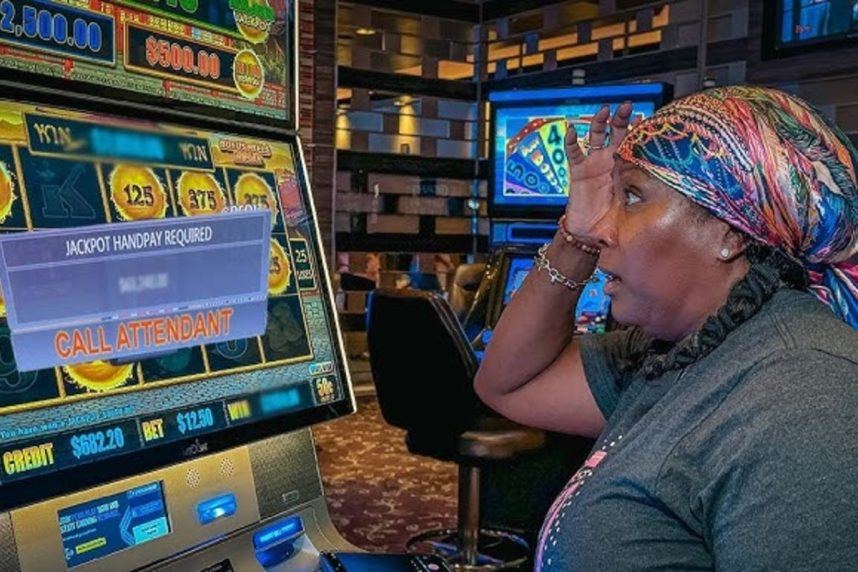Slot Tax Reporting Threshold Confusion Emerges With ‘One Big Beautiful Bill’
Posted on: July 15, 2025, 03:47h.
Last updated on: July 15, 2025, 04:07h.
- There are varying opinions on whether the “One Big Beautiful Bill Act” increased the slot tax reporting threshold
- The American Gaming Association believes the threshold was raised to $2,000
- A tax expert in Las Vegas says the slot threshold wasn’t impacted
Did the Republicans’ “One Big Beautiful Bill Act” (OBBBA) raise the slot tax reporting threshold from $1,200 to $2,000? There are differing opinions.

Among the many tax implications included in the federal statute passed by Congress and signed into law earlier this month by President Donald Trump is Section 70433. The segment refers to “Application to Reporting on Remuneration for Services,” or Section 6041(a) of the IRS tax code.
The OBBBA language raises the reporting minimum from $600 to $2,000. Casino.org reported earlier this week on the American Gaming Association (AGA) interpreting that to include income from gambling that is reported through the W-2G form.
In a statement received on Tuesday, an AGA spokesperson said the section “applies to any reporting under section 6041 of the Internal Revenue Code. The slot threshold is tied to that section of the code.”
The AGA provided a link for its explanation that can be found here.
Some tax professionals, however, have differing opinions. Russ Fox of Clayton Financial and Tax, a prominent Las Vegas tax professional, explains that the tax provision applies only to 1099-MISC filers. The filing threshold for a 1099, beginning next year, will increase by $1,400 to $2,000.
The tax reporting threshold for a slot or other gambling win, Fox believes, will remain at its current levels (slots at $1,200, keno at $1,500, and table games at $600 when the payout is at least 300 times the amount of the wager).
Tax Clarification
Fox explains that the issuance of a W-2G is governed by §3402(q) of the Tax Code — and that was not changed in the OBBBA.
Thus, beginning in 2026, a W-2G must still be issued at $1,200 for a slot win,” Fox said.
Fox says an increase to the slot threshold could still come, though he thinks the odds are long.
Now, it’s possible Congress meant for both limits to increase. Typically, a ‘technical corrections’ bill is proposed. This is usually bipartisan and fixes ‘oops’ items. However, given how polarized Congress is, I have my doubts about such a measure passing this year. And it might be that Congress intended this to be exactly as it is,” Fox continued.
“Finally, it is possible the IRS will interpret this law change to mean the W-2G threshold is increased to $2,000. That would be welcome by almost everyone, but I would not hold my breath waiting for that interpretation,” Fox concluded.
The slot threshold hasn’t changed since 1977. The casino industry has long lobbied the federal government to increase the threshold, as $1,200 in 1977 is about $6,600 today with inflation. Win a player hits a slot prize upwards of $1,200, the game goes offline until a slot attendant provides the winner with a W-2G form.
AGA Comments
Chris Cylke, the AGA’s senior vice president of government relations, told SBC Americas that the gaming trade group believes that OBBBA indeed raised the slot tax reporting threshold to $2,000.
“Raising the slot tax reporting threshold to $2,000 and indexing it to inflation is a long-overdue modernization that reduces regulatory burdens and improves the customer experience,” Cylke commented. “It’s a hard-fought win for our industry, and we look forward to working on regulatory implementation.”
Last Comments ( 9 )
Walter Knight : this had to be bubble craps right?
Recently at a Washington state Indian casino I bet $500 during a Craps game on FIVE, winning $725. The casino combined my $500 wager with my $725 winnings, claiming the $1225 total med the IRS threshold for reportable income. I complained to the Gambling Commission, and won. However, other casinos across the country still don't agree. Other gamblers are still having this problem.
The AGA is pointing to an IRS REGULATION numbered 6041 and saying the BBB modified it. It doesn't. BBB modifies 26 USC 6041. Go read 26 USC 6041. It applies to 1099 reporting. It should be obvious that this is not related to gaming since the pre-BBB threshold in 26 USC 6041 was $600, not $1,200.
Reporting and Withholding are seperate The bill changes the reporting rules for various gambling winnings. That's 6401(a). Increased to $2K The bill does not change normal $5K withholding rules. That's 3402 But if you don't give the House your SSN, then you'll get stuck with backup withholding. That's 3406. When the 6401(a) threshold gets increased, the 3406 withholding threshold automatically goes up, because backup withholding only applies to gambling if they are reportable under 6401
Aren't many slot machines actually "bingo" games?
At some tribal casinos, yes. Properties like those in Alabama that don't have a Class III gaming compact with their host state often feature slot-like electronic bingo machines. Slots at tribal casinos like Foxwoods and Mohegan tho are just like the ones on the Las Vegas Strip!
I'm still confused. 3042(q)(5) says that 3042(q) does not apply to slot machines: "(5)Exemption for bingo, keno, and slot machines The tax imposed under paragraph (1) shall not apply to winnings from a slot machine, keno, and bingo."
So even the experts don't understand tax law. How are us unwashed masses then expected to understand this tax code gobbledygook?
Pass a bill and fix the details later? What the f?